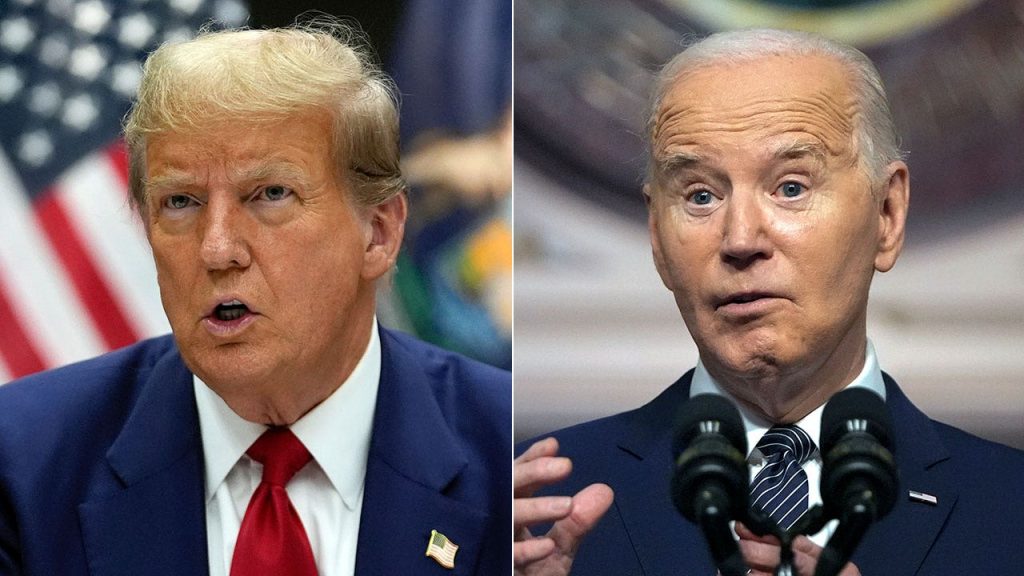President Biden and former President Trump have agreed to officially debate, with Biden accepting Trump’s open invitation to debate anytime, anywhere. However, the Biden campaign has placed several restrictions on the debates, including no audience being present during the debates in order to focus solely on the interests of voters watching on television. Additionally, the campaign is demanding that the debate be one-on-one, with no third-party candidates allowed, to allow voters to compare the only two candidates with any statistical chance of winning the Electoral College.
The Biden campaign is also limiting the number of major news outlets that can host a presidential debate to include only those that hosted a Republican primary debate in 2016 with Trump and a Democratic primary debate in 2020 with Biden. This rule would restrict the hosting of a debate to networks such as CNN, ABC, CBS, or Telemundo. Furthermore, the Biden campaign is demanding that candidate microphones be muted once their allotted speaking time expires to prevent extensive crosstalk and interruptions that occurred during the 2020 debates between Trump and Biden.
Trump has accepted the debate offer despite the restrictions, with the first debate scheduled for June 27 and to be hosted by CNN. Trump has also proposed having more than two debates and a very large venue for excitement purposes, though Biden is reportedly afraid of crowds. Trump expressed his readiness to debate and willingness to engage with Biden in a lively and engaging manner, urging Biden to follow through with the debate promises and make the events a highly anticipated and entertaining affair.
The debate restrictions imposed by the Biden campaign reflect a desire for a more orderly and informative debate process that serves the interests of the American voters watching at home. By having the debates take place in a television studio with just the candidates and moderator present, Biden’s team hopes to eliminate disruptive elements that can detract from the substantive discussion between the candidates. The move to limit news outlets that can host a debate and require candidate microphones to be muted after time expires is aimed at ensuring a fair exchange of views during the debates.
The Biden campaign’s stance on the debate requirements has drawn criticism from some, including third-party candidates like Robert F. Kennedy Jr., who accused both Trump and Biden of colluding to block him from the debate stage. Others have questioned the necessity of imposing strict limitations on audience presence and news outlets hosting debates, suggesting that it could hinder the democratic process and limit transparency. Despite these concerns, Trump’s acceptance of the debate offer indicates a willingness to engage with Biden on the proposed terms and provide voters with a chance to compare the two candidates directly in a controlled setting.
Overall, the upcoming debates between Biden and Trump promise to be a highly anticipated and closely watched event, with both candidates gearing up for spirited exchanges and discussions on key issues. The restrictions imposed by the Biden campaign underscore their commitment to providing a fair and informative debate process that prioritizes the interests of the American voters. It remains to be seen how the debates will unfold and whether the imposed restrictions will impact the overall debate experience for viewers and participants alike.













